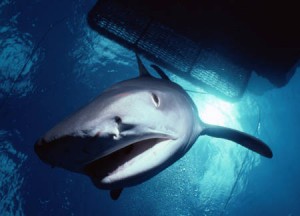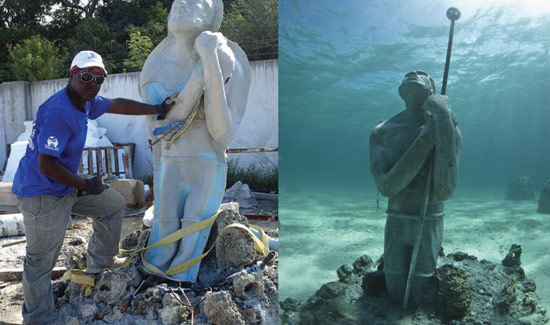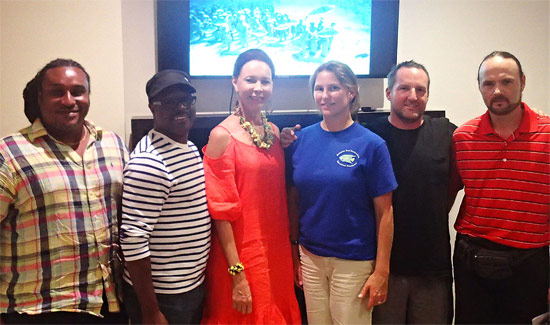
As the Bahamas National Trust forges ahead with its fight to effect protection for sharks in The Bahamas, an internationally-renowned organization, the Pew Environment Group, has jumped on the bandwagon.
BNT Executive Director Eric Carey said yesterday that this is just another move to push the government to pass legislation which will protect sharks from commercial harvesting.
“The Bahamas has the most viable and intact population and diversity of shark species in the western Atlantic, and one of healthiest populations of any country in the world, and as such we want to take this opportunity to ensure that they remain healthy and they are protected in perpetuity,” Carey said.
“We are looking at this campaign from two perspectives. The first is the ecological perspective, saving sharks is of great value to the ecosystem. Sharks are an important component of any ecosystem so if you save sharks you protect a healthy ecosystem. If sharks disappear from the ecosystem then you remove a top predator and you remove a key component of that ecosystem, and you starve your ecosystem, your marine environment, which spirals towards collapse. So we have a rare opportunity in The Bahamasto do conservation on a healthy population,” said Carey.
The mission of the Pew Environment Group is to help protect the natural environment and the rich array of life it supports. It seeks to strengthen environmental policies and practices in ways that produce significant and measurable protection for both terrestrial and marine systems worldwide.
The group’s efforts are focused on reducing the scope and severity of three major environmental problems; dramatic changes to the earth’s climate, caused by the increasing concentration of greenhouse gases in the atmosphere; the loss of large wilderness ecosystems that contain a great part of the world’s remaining biodiversity; and the destruction of the world’s oceans with a particular emphasis on global marine fisheries.
Carey stressed that The Bahamas is fortunate with its shark population and is in a very good position ecologically. “We can protect the status quo and ensure that our population remains healthy,” he noted.
In October the BNT formally launched its local shark conservation campaign.
Carey said shark populations are in trouble globally. The relative health of the shark populations in The Bahamas has been attributed to the country’s ban on long-line fishing in the 1990s, combined with the fact that there is no incentive for local fishermen to sell shark meat.
Carey explained that the growing demand for the Asian delicacy, shark fin soup, has led to the killing of up to 73 million sharks a year and is impacting shark populations worldwide, which could potentially affect The Bahamas.
He believes the loss of sharks could cause irreversible damage to the ocean and to economic activities, such as dive tourism, that benefit from healthy marine habitats.
“The government has the opportunity to show incredible environmental leadership, to not only the region but also the global conservation community,” Carey explained. “So far BNT has gotten a very good response from the government and a firm commitment that it would work with us to try and make this happen,” he said.
Yesterday the BNT held a meeting with Minister of the Environment Earl Deveaux, and today BNT will be meeting with officials from the Ministry of Tourism.
“We believe that we do have a commitment from government to make it happen. We are mounting a sustained and consistent effort to keep before them, to keep reminding them. We are trying to convince them of the opportunity they have before them to show incredible leadership globally on a conservation initiative,” Carey said.
Source: The Nassau Guardian



